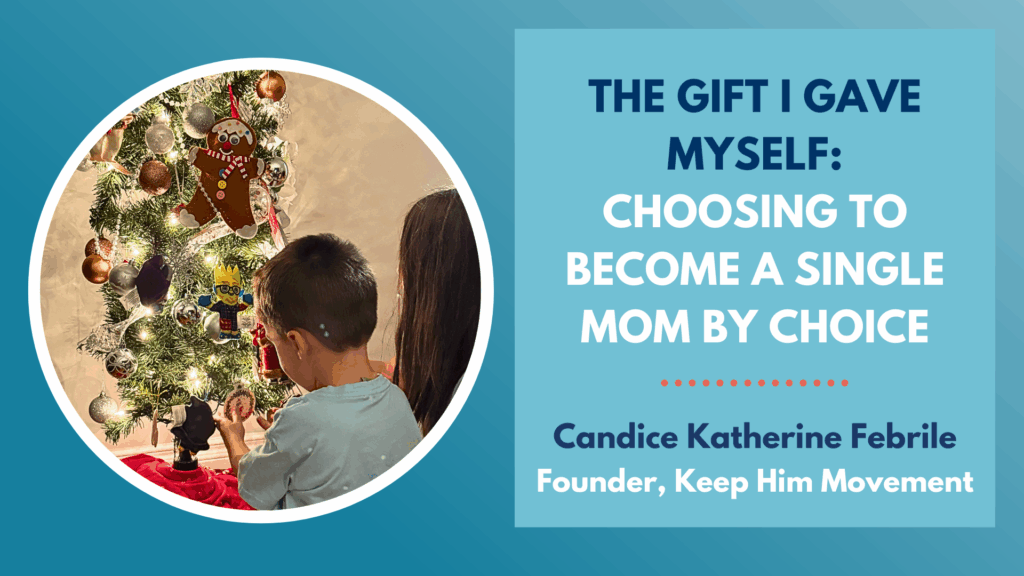Resources for Disclosing Donor Conception to Your Child
Check out this article from Guest Blogger, Christina Barnes, MSN, CPNP, who shares a few resources on how to disclose donor conception to your child.
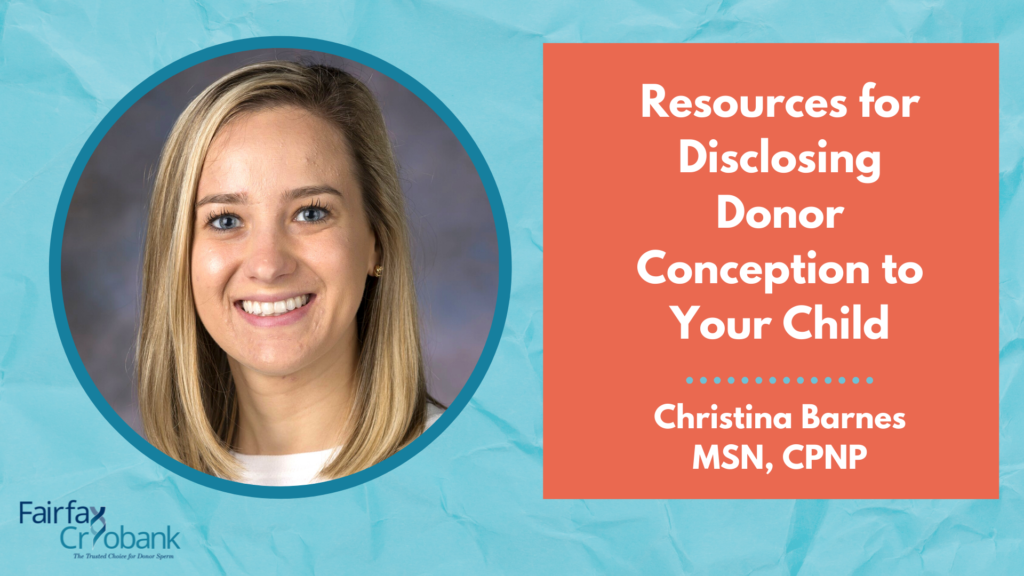
Deciding if, when, and how you tell your child that he or she is donor conceived is a very personal decision. Some families choose not to tell their children, while others share their conception story with everyone they know. This post is not about whether or not you should tell your child about donor conception – there are already many great resources available to help you make that decision. If you’re in the process of deciding whether or not to tell your child, The American Society for Reproductive Medicine has a great fact sheet linked here: Gamete and Embryo Donation: Deciding Whether to Tell.
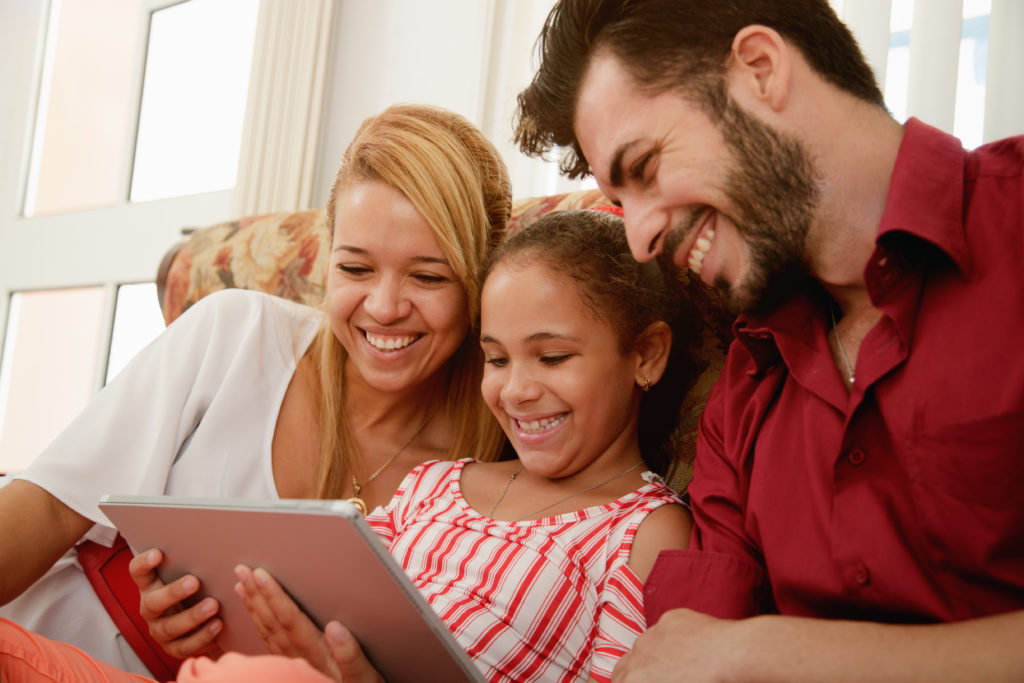
When looking for information online, try to stick to sources backed up by scientific evidence from reputable organizations. If you are struggling with making the decision on whether or not to share this with your child, speak with your OB-GYN or midwife, or ask them for a referral to a family therapist specializing in infertility, LGBTQ families, and/or donor conception.
If you have decided, however, that you want to tell your child that he or she is donor conceived, this post is for you. I’ve made a list of some websites, organizations, and books that will help you discuss the topic and engage with the larger donor-conceived community. If your child is older, giving them the opportunity to connect with others “like them” can help them to process and accept their new normal. If your child is younger and doesn’t yet have an idea of how babies are made, reading a fun book with details about their conception can introduce the idea as a positive experience. However you decide to tell your child, experts agree that you should be honest, open, and patient.
Articles & Websites
1. The Rainbow Letters: The Rainbow Letters is a site dedicated to publishing letters from the LGBTQ community on the topic of family. The project started as a way for children of LGBTQ parents to share their stories, and has grown to include letters from parents and relatives. Many of the letters touch on donor conception, sharing the grown child’s perspective. The letters are uplifting, encouraging, and full of pride, reminding you that you are not alone in your family creation journey.
2. COLAGE: COLAGE is a national organization that “unites people with one or more lesbian, gay, bisexual, transgender, queer, intersex and/or asexual parent into a network of peers and supports them as they nurture and empower each other to be skilled, self confident, and just leaders in our community.” They have a Donor Insemination guide available under Resources and an active social media presence on Instagram @colagenational, Twitter @COLAGENational, and Facebook. They share stories of donor-conceived children and their families, and are home to The Queerspawn Resource Project.
3. Parents Via Egg Donation Webinar: Talking to Kids About Family Building and Donor Conception: Parents Via Egg Donation, pved.org, has a previously recorded webinar available that covers how to talk to your children about donor conception. The talk is given by a licensed marriage and family therapist specializing in donor conception. At an hour long, the webinar is detailed and thorough and includes lots of specific recommendations. Even though the focus of the talk is egg donation, most of the advice can be used for children conceived via sperm donation as well.

Children’s Books
There are many children’s books that discuss reproductive technologies in some way or another. The available books cover a broad range of family types and vary in how medically accurate they are. I have included my three favorite books, but there are lots more listed in this blog: Assisted Reproduction: Books for Children. Maintained by a librarian, the blog has categories such as “donor sperm,” “donor egg,” “donor embryo,” and “donor siblings” with book titles, covers, and descriptions.
1. The Pea That Was Me: An Egg Donation Story
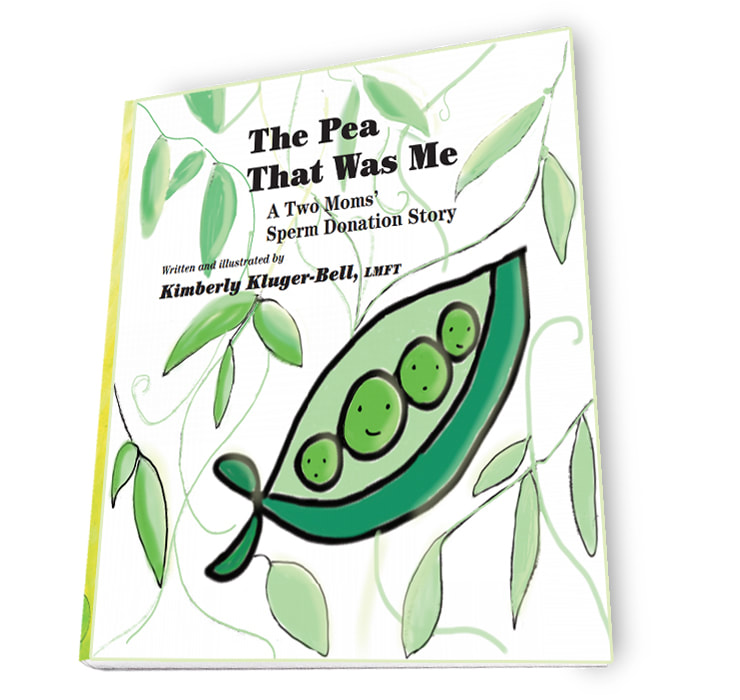
Books For Donor Kids by Kim Kluger-Bell, MA, LMFT: Kim Kluger-Bell is a Licensed Marriage and Family Therapist who has written more than 10 books for donor-conceived children. Her “A Pea That Was Me” book has multiple versions: egg donation, sperm donation, two-mom’s sperm donation, two-dad’s embryo donation and surrogacy, single mom sperm donation, single mom sperm and egg donation, IVF, and embryo donation. These books are for children 3 years and older, written as a fun storybook with scientifically accurate information. Even if the younger children don’t fully understand the concepts, they still benefit from becoming familiar with words such as donor and sperm or egg.
To check out her books and a very cute video of The Pea That Was Me, visit Books For Donor Kids.
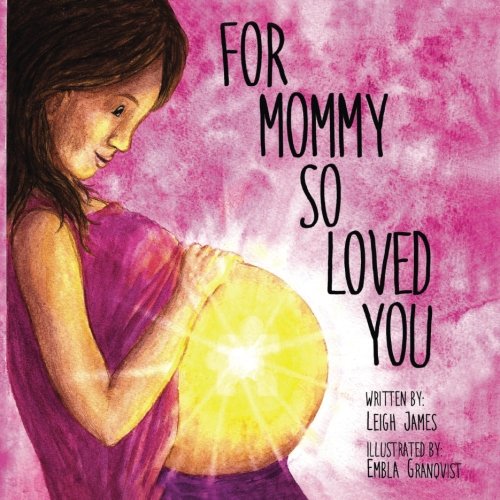
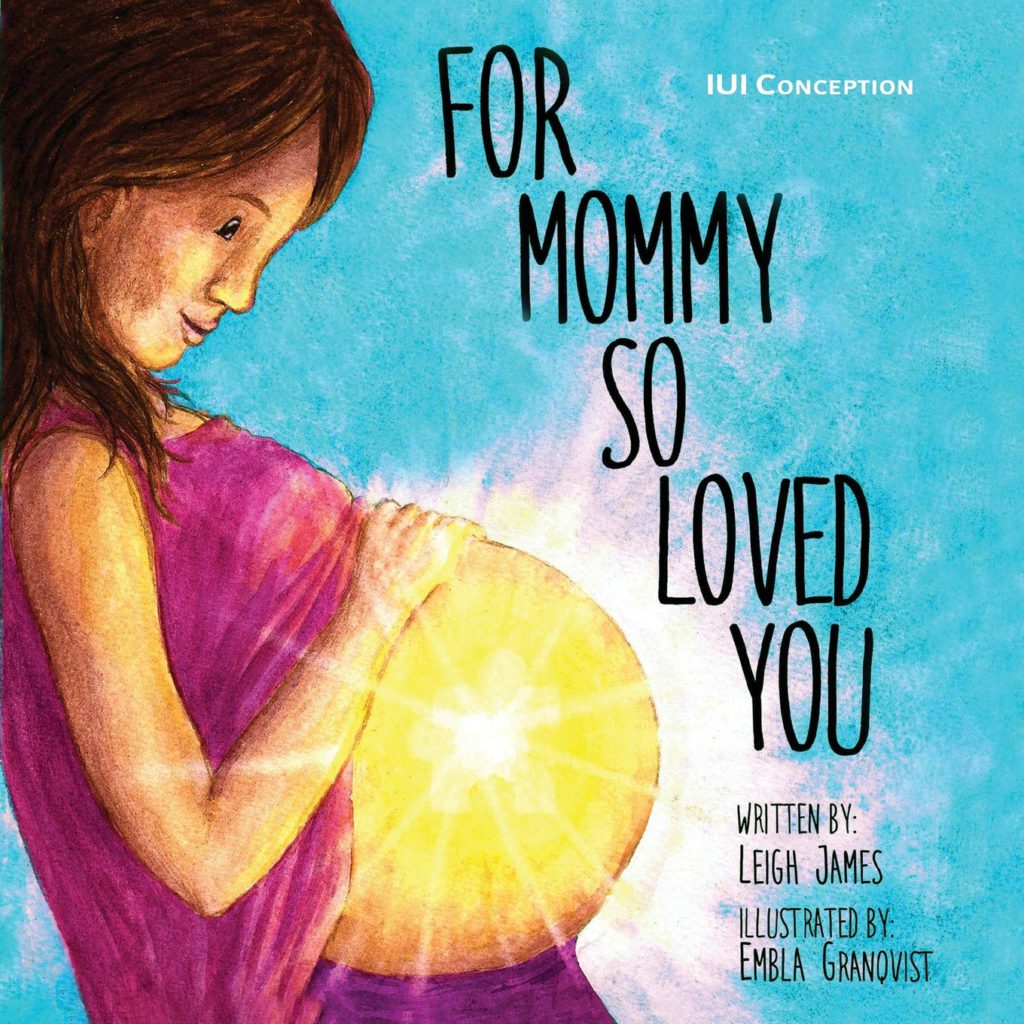
2. For Mommy So Loved You: IUI Conception (blue cover) or IVF conception (pink cover): A heartwarming story about a single mother’s journey to parenthood using donor sperm and either IUI or IVF. The book describes the process to children in terms they can understand, although it’s not entirely scientifically accurate – the book shows the sperm going in through the mommy’s belly button. If this doesn’t bother you, the book is worth the read for its celebration of the love of a single mother by choice.
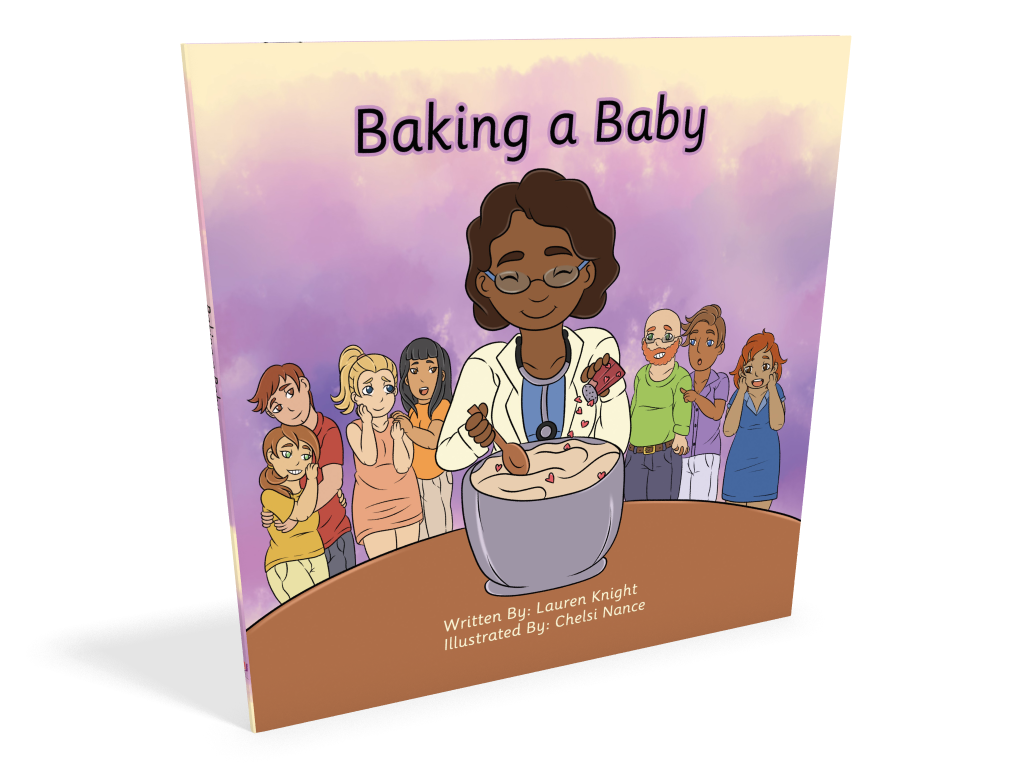
3. Baking a Baby by Lauren Knight: This book uses the idea of baking to introduce children to the “ingredients” needed to make a baby – “eggs, sperm, and a tummy for the baby to grow.” The characters cover different races, genders, and sexualities that cover many different types of families. Hard copies of Baking a Baby are sold in Australia, but can be purchased internationally by contacting the publishing company HERE.
Or, you can buy the kindle version on Amazon HERE.



